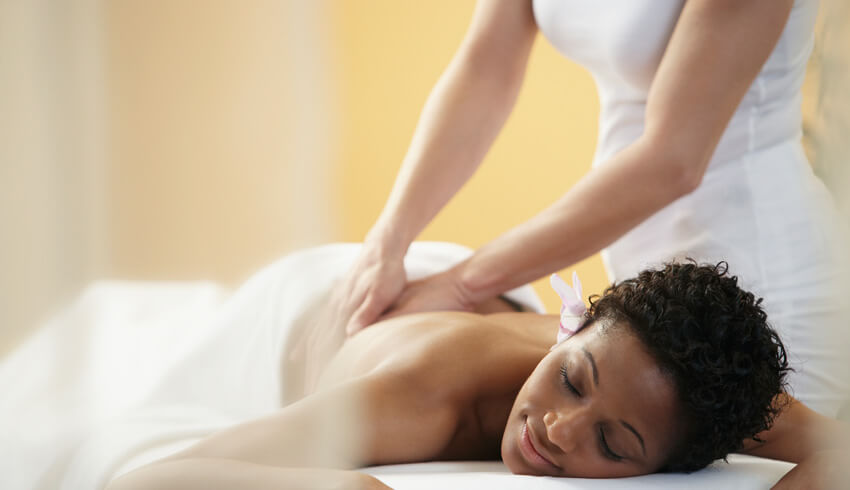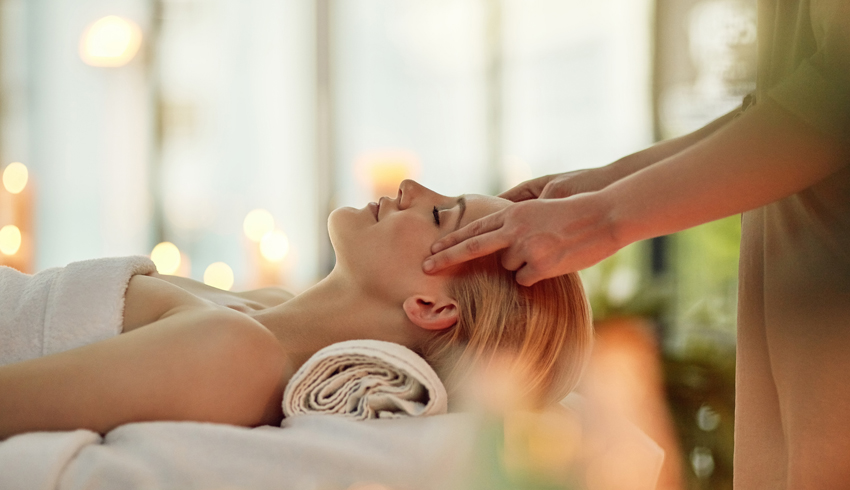
If you own or manage a spa, you may find that one of the surprisingly difficult aspects is learning how to market your business online. Having an online presence is only becoming more and more important in making your spa stand out in your community. In this article, you'll find out how to make it easier for customers to find you online and how to build more reviews.
What Is Local SEO?
When learning about digital marketing you may come across the term “SEO” rather often. SEO stands for “search engine optimization” and, in simple terms, refers to the process of increasing quantity (and ideally, quality) of visits to your website through search engines - like Google and Bing. The better your digital information is optimized to appear in these search results, the more likely people will find your business online. Local SEO is simply optimizing your online presence so you’re easily found in local searches e.g. if someone searches “spa near me.”
When thinking of SEO, it’s important to remember that it refers to organic results (for example, results that appear on page one of Google for a specific search phrase completely organically and are not paid for). Whereas paid results, or Google Ads, will have a little box that says “Ad” beside them and are paid for. They can be a great option if you have a marketing/advertising budget and want to show up in search results but have less time to invest in SEO practices.

Why Do I Need To Know About SEO?
While SEO is a nuanced specialty of digital marketing, having a basic understanding of common principles is important for any business owner or manager today. Your spa’s online presence is crucial as most people now use internet search to find and form opinions on businesses near them. If your spa’s website or online assets are missing or set up in a way that makes it hard for search engines to know you’re there, it’s also hard for potential clients to know you’re there.
How Can I Help People Find My Spa Online?
When thinking about how your spa can appear on the first page of search results, focus on three key areas: your website, online business listings and online reviews.
1. Your Website
If you don’t already have one, you need a website. Think of your website as the online extension of your business. This is the one digital asset that you truly own where you can share information like your hours, services and mission. Social media accounts and review platforms are more like rented spaces, and ultimately serve as a place to connect with others. As an owned space, your website serves as the digital presence of your brick and mortar business. There are many options available to easily put a site together (no coding skills required!) typically with preset layouts and designs which make the process easier than ever.
2. Online Business Listings
If your website is set, you can then move into those “rented spaces.” Eminence Organics’ Director Of Digital Experience, Will Alexander, strongly encourages the following four platforms: Google My Business, Bing Places, Facebook Business and Yelp.
Google My Business And Bing Places
The one listing that will likely boost your search results the most is Google My Business. As most people use Google as their primary or only search engine, Google has become very smart at showing people what they want to see. Although you may think you’re not familiar with Google’s Local Pack, if you’ve ever googled “restaurants near me,” you’ve definitely used this feature. Simply put, the Local Pack is that little map that pops up when you search, showing the businesses in your area that fit the search term, their Google star rating, address, hours, website and directions.
That little listing is pulled from Google My Business accounts, making this a crucial profile to control. A similar process happens on the search engine Bing, although Bing is not as popular as Google. It is still important to also have a Bing Places account to ensure consistency across search engines, making your business feel more legitimate to clients as well as easier to find.
Setting up or claiming your business on Google My Business and Bing Places for Business allows you to display relevant information for the public, allowing you to market your spa based on location. Setting up these accounts is very easy and in fact, you may find that a listing already exists. If it does exist, you simply need to claim the business as yours and verify.
Start with the basics with these listings, ensuring your profile has:
- Your business name: Make sure this is the same everywhere. While it may seem like common sense, this does get overlooked! If your spa’s name is “The Anywhere Spa” on your front door and website, make sure it is “The Anywhere Spa” on your listings as opposed to “Anywhere Spa” or “The Spa Anywhere.”
- Your business address: Google and Bing will mail you a document with a unique code to verify this information. Don’t panic if this takes up to a week to arrive.
- Category: The type of business you are. For example, “spa,” “day spa,” or “salon and spa.”
- Your website: Be sure to also provide the link to your website to legitimize the listing.
- Your hours: Match the hours on your website.
- Photos: Upload clear, bright photos of the exterior of your building as well as the lobby and treatment rooms. If possible, it’s nice to have professionally shot photos that can also be used on your website, although this is not a must-have.
- Reviews: Google My Business has a star-based review system where the public can submit a review of your business. Bing Places for Business will pull reviews from other platforms like Yelp.
The biggest thing to remember? Consistency is key! According to Moz, having an inaccurate or inconsistent business name, address and phone number across all platforms can actually negatively impact your SEO efforts. If you’re worried about this, bookmark the Moz Local Search tool to check your listings on search engines.
Facebook Business
Like Bing and Google, Facebook also has a business page available. Unlike Bing and Google, this listing does not appear in a map when you search online. However, having a business page on Facebook is commonly expected by most modern customers because it provides a space to chat and interact with clients, share your business’s personality and is another opportunity to share information like your hours and location.
Setting up a business page is simple and requires much of the same information needed for Google and Bing. A few additional areas to complete for your Facebook page:
- A description: In the about section of your page, provide a brief description of what your spa does.
- A profile and cover photo: Typically, a good rule of thumb is to upload your spa logo for the profile picture and for the cover photo, choose a shot of products you carry, the interior of your spa or a relaxing stock image of a spa scene.
- A call to action: You can set a button at the top of your page urging people to book a treatment, call the spa or visit your website. This is a great opportunity to simplify the process for clients.
Not only is your Facebook business page a great way to connect, but it allows people searching Facebook for local spas to come across you. As an additional online asset in your toolkit, this listing increases your chances to appear in a Google search as well.
Yelp
Unlike other online business listings, the main purpose of your Yelp listing is to gain and monitor reviews. Much like the other platforms, your business may already exist on Yelp and need to be claimed. This is probably the most straightforward account to set up as you simply fill in the fields as directed. As always, ensure the information provided on Yelp aligns with the information on your other platforms and on your website.
3. Online Reviews
With your online listings set up, you now have the opportunity to build your online reviews. A lack of reviews on Google, Facebook and Yelp - or planted reviews from staff members - can look untrustworthy to those searching for a new spa. The best way to gather reviews is to simply ask your clients.
Ideally, you can ask in person, after the treatment at the front desk. As your client is paying or rebooking, work this into your regular dialogue. Ask them how they enjoyed their treatment and if they did, thank them and suggest that they leave a review, stating that they can find you on Google, Facebook and Yelp. After clients write a review, be sure to “like” it and respond to it promptly. Your customers will greatly appreciate this personal touch, and you may see it encourage even more conversation and positive reviews.
One important caution: If you’re thinking of giving away prizes for reviews, don’t. It’s prohibited by these platforms to run a contest asking for reviews for a chance to win a prize. While this can seem like a great way to entice people, this can be detrimental to your business and lead to all of your reviews being removed by the platform.

What Is The Impact Of These Practices?
According to studies cited by Inc.com, “91 percent of people regularly or occasionally read online reviews, and 84 percent trust online reviews as much as a personal recommendation.” This is a staggering number of people. Your spa will be trusted by more potential clients than ever when your business appears online with concise information and real review.
In terms of day-to-day impact, these practices are not something you set and forget. For a true impact on your business, you will want to monitor these accounts daily, ensuring reviews continue to come in, that they are responded to quickly and that your information is regularly up to date (including hours, holiday closures etc.). With a Facebook Business page, you can also post regularly (starting with a few times a week), sharing any weekly specials, new hires, spa tours or treatment demonstrations.
All of these assets work together to give your spa the attention it deserves online while simplifying the process of digital marketing. With a website, business listings and reviews, your business is more likely to appear when new people search online, opening the door to new clientele.
Ready to grow your spa business? Find out how to partner with Eminence Organics!


